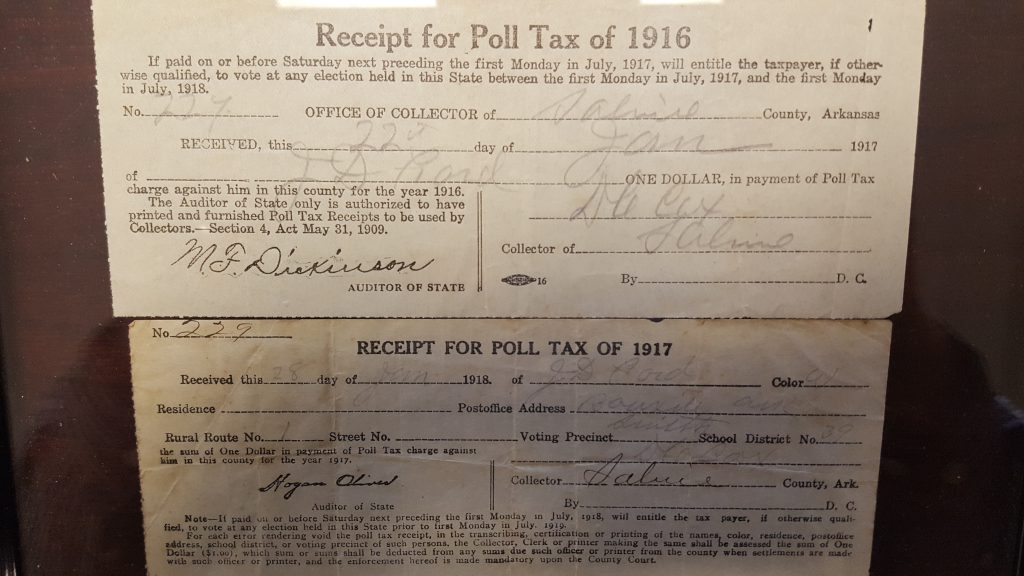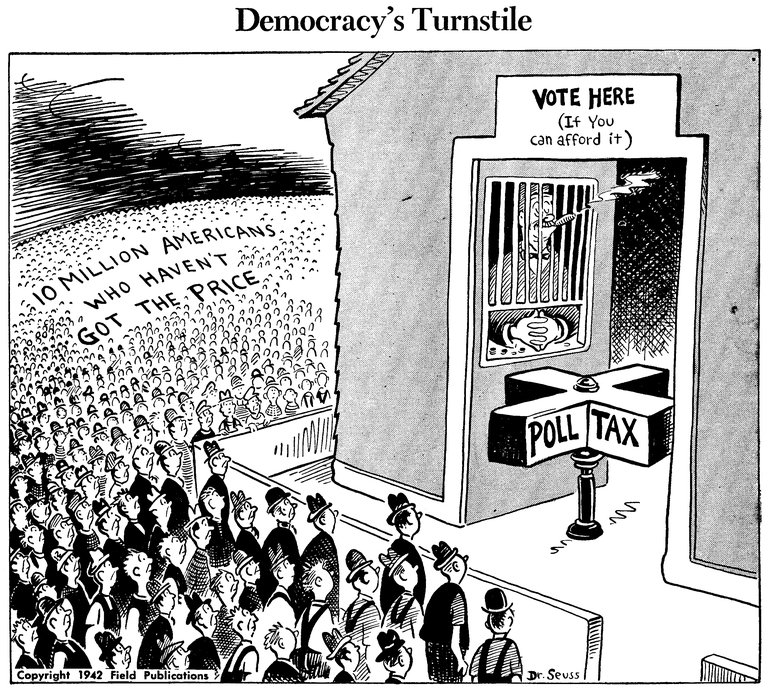There has been a lot of talk about Dr. Seuss Enterprises deciding to change its portfolio of products. Taxes are not involved, so, I shall ignore that kerfuffle here. But, I have two items in The Tax Museum that I think are interesting relative to this discussion of Dr. Seuss.
The first is a poll tax receipt from 1916 and 1917 from Alabama. That time period was a not a great time for race relations in the US, particularly in the south. You will notice one change from the poll tax receipt is the addition of a line for “color”. The poll tax collectors wanted to explicitly collect the race of the taxpayer. I assume this is because it is difficult to know if you are suppressing votes of certain demographics of citizens without collecting data on who is voting. The poll tax was a fixture in the United States, particularly in the southern United States (including North Carolina). It was abolished in 1964, when the 24th amendment banned poll taxes. The poll tax particularly emerged as backlash to the populist movement as a way to keep poor white people and poor black people from voting.

What does this have to do with Dr. Seuss? Dr. Seuss drew many, many draws not aimed at children, and, several have tax-related themes. One, which is included in the “digital only” wing of the The Tax Museum, is a pretty harsh indictment of the poll tax, driving home the point that a democracy that explicitly prohibits the less well off from voting is not much of a democracy.
